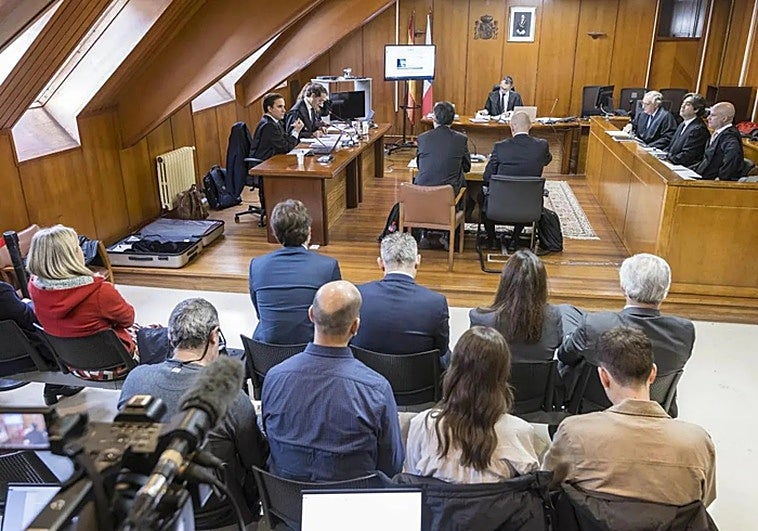Spanish energy giants in court over misleading customers with 'green' messages
Repsol denies the accusations made by Iberdrola and defends its commitment to energy transition
Manu Alvarez
Wednesday, 27 November 2024, 11:22
In an unprecedented battle between two of Spain's largest energy companies, Iberdrola and Repsol were in court in Santander on Thursday 21 November with the former accusing the latter of misleading customers over its environmental policies. Repsol argued that it "is not true" that it misleads its customers with messages about the sustainability of its products and that it has 'greenwashed' the sale of fuels, around which more than 90% of its turnover revolves.
Iberdrola claims Repsol uses sustainability in its corporate and advertising messages to gain a commercial advantage. In its defence, Repsol denied the accusations of misleading advertising in some of its communication campaigns and also in its public reports. Iberdrola implied that the electricity company is only upset because it is losing market share in Spain in electricity sales.
This is at the heart of the hearing which took place on Thursday 21 November at the Court of Appeal in Santander. The case brought by Iberdrola against Repsol focused on several advertising campaigns launched last year by the company in which it marketed fuels, electricity and gas with discounts and messages linked to sustainability or the renewable nature of some hydrocarbons.
For just over five hours, Iberdrola's and Repsol's lawyers battled it out with language that would require a Master's in semantics, corporate communication and sustainability. Iberdrola relied on the expertise of the communications company Roman y Asociados and the company Nera for economic evaluations, while Repsol used Llorente y Cuenca - Spain's leading communications consultancy firm - and the energy economics expert Fernando Barrera.
Misleading advertising
The final decision on the case is in the hands of magistrate Carlos Martínez de Marigorta. Iberdrola has accused Repsol of lying when Repsol claims that it is committed to sustainability - it asserts that its investments in the hydrocarbons sector are the main proof. However, Iberdrola argued that in reality what it wants is to make money for its shareholders.
Repsol representatives denied these accusations because both the terminology and the context of the advertising campaigns and the company's documents allow for other interpretations. They have denied that the company is greenwashing its advertising campaigns.
Sustainability and price
Repsol's lawyers also endeavoured, supported by expert opinion, to limit the real impact of some advertising messages. They supported the idea that consumers give very limited importance to the "green cover" of some products, because what they really prioritise is price. In fact, the campaign now under scrutiny offered significant discounts on fuel purchases - up to 20 cents in the best case - for customers who also signed up for electricity or gas contracts or contract the installation of solar panels.
In these campaigns Repsol boasted of its "commitment to sustainability" and also of its commitment to the energy transition and the achievement of zero net emissions by 2050, citing as examples the start of the marketing of renewable fuels - already in 600 petrol stations in Spain - as well as its investments to experiment with hydrogen and synthetic fuels.
When choosing a lawyer becomes difficult
In a court battle between two large companies, in a highly public procedure - some thirty journalists and five television channels were present at the hearing - it is to be expected that the two parties use lawyers from the country's leading law firms. In practice, however, this is impossible. As such, both Iberdrola and Repsol have entrusted the defence of their interests in this case to more discreet law firms, which do not occupy leading positions. One has entrusted the work to Dentons and the other to Ontier. While they are both prestigious law firms, they are far from being leaders in the legal sector. The reason is simple and responds to a strategy of prevention that is usually practised by large companies - regardless of the sector to which they belong- to prevent a case against them from being formulated by a leading firm. They hire all the leading law firms on a permanent basis and for different missions. In this way, and thanks to the so-called 'conflict of interest', they avoid being confronted head-on.
